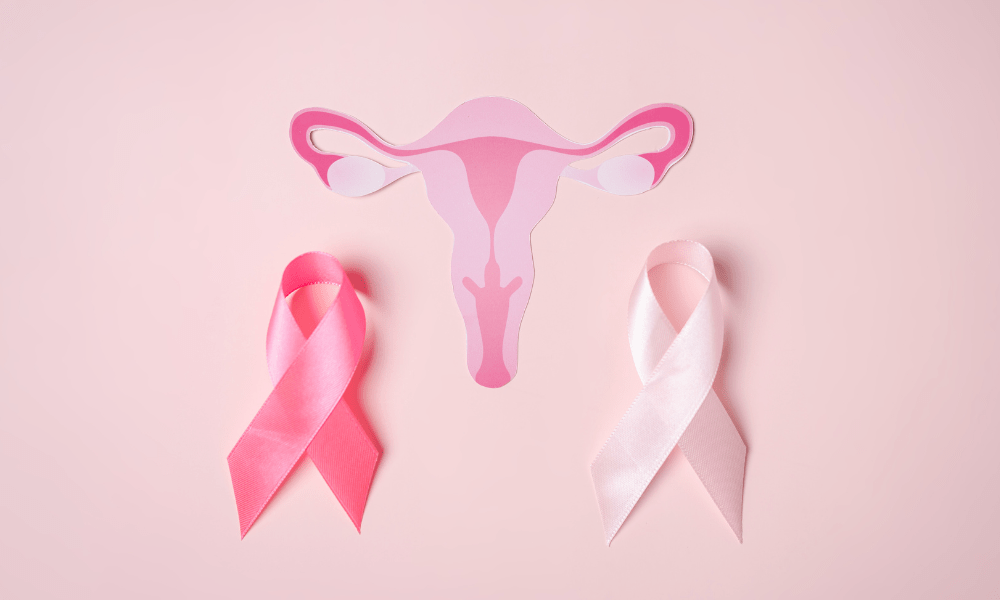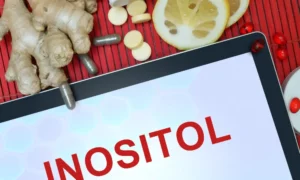Polycystic Ovary Syndrome (PCOS) is a common condition affecting individuals, particularly women, in their reproductive years. It is characterized by hormonal imbalances leading to irregular periods, ovarian cysts, and various metabolic issues. While hormonal treatments are often recommended, there’s a growing interest in non-hormonal approaches for managing PCOS. In this article, we will explore the trusted and helpful non hormonal treatment for PCOS and different strategies for your well-being.
Contents
Understanding PCOS 
PCOS stands for Polycystic Ovary Syndrome. It is a common hormonal disorder that affects people with ovaries, typically during their reproductive years. PCOS is characterized by a combination of symptoms, and its exact cause is not well understood. Some of the key features of PCOS include:
- Irregular Menstrual Cycles: Women with PCOS often experience irregular or missed periods. This is due to the lack of regular ovulation.
- Excess Androgen Levels: Androgens are male hormones that females also produce. In PCOS, there is an excess of androgens, which can lead to symptoms like acne, excessive hair growth (hirsutism), and male-pattern baldness.
- Polycystic Ovaries: The ovaries may contain small collections of fluid (follicles) that surround the eggs. Despite the name, these are not true cysts.
- Insulin Resistance: Many women with PCOS have insulin resistance, which can contribute to higher levels of insulin in the blood. This can lead to weight gain and an increased risk of Type 2 diabetes.
- Weight Gain: PCOS is often associated with weight gain and obesity, although it can affect individuals of all body types.
The exact cause of PCOS is not fully understood, but it is believed to involve a combination of genetic and environmental factors. There is no cure for PCOS, but its symptoms can be managed through lifestyle changes, medication, and, in some cases, fertility treatments. It’s important for individuals with PCOS to work closely with their healthcare providers to address specific symptoms and potential long-term health concerns.
Non-Hormonal Treatment Options
(PCOS) is a condition that affects hormonal balance in women, leading to symptoms such as irregular periods, cysts on the ovaries, and hormonal imbalances. While hormonal treatments like birth control pills are commonly prescribed, non-hormonal approaches can also be considered. It’s important to note that the effectiveness of these approaches may vary from person to person, and consulting with a healthcare professional is essential for personalized advice. Here are some non-hormonal treatments for PCOS:
Lifestyle Changes
- Dietary Modifications: Adopting a balanced and nutritious diet can help manage weight and improve insulin sensitivity, which is often an issue in PCOS. Focus on whole foods, fruits, vegetables, and lean proteins while limiting processed foods and sugars.
- Regular Exercise: Engaging in regular physical activity can assist in weight management and improve insulin sensitivity. Both aerobic exercises and strength training can be beneficial.
Insulin-Sensitizing Medications
- Metformin: Although it is primarily an anti-diabetic drug, metformin is sometimes prescribed to women with PCOS to improve insulin sensitivity. This can help regulate menstrual cycles and reduce symptoms.
Nutritional Supplements
- Inositol: Some studies suggest that inositol, particularly Myo-inositol and D-chiro-inositol, may help improve insulin sensitivity and regulate menstrual cycles in women with PCOS.
- Vitamin D: Vitamin D deficiency is common in women with PCOS. Supplementation may be recommended to address this deficiency, as adequate vitamin D levels are important for overall health.
Weight Management
- Weight Loss: Achieving and maintaining a healthy weight can have a positive impact on PCOS symptoms. Even a modest weight loss can improve insulin sensitivity, regulate menstrual cycles, and reduce androgen levels.
Anti-Inflammatory Approaches
- Omega-3 Fatty Acids: These can have anti-inflammatory effects and may be beneficial for women with PCOS. Sources include fatty fish, flaxseeds, and walnuts.
- Turmeric/Curcumin: Known for its anti-inflammatory properties, turmeric or curcumin supplements may be considered.
Stress Management
- Mind-Body Techniques: Practices such as yoga, meditation, and deep-breathing exercises can help manage stress, which in turn may positively impact hormonal balance.
It’s crucial to remember that individual responses to treatments vary, and what works for one person may not work for another. Additionally, a healthcare professional should be consulted to develop a personalized treatment plan tailored to specific needs and health conditions.
Nutritional Supplements For PCOS 
While it’s important to consult with a healthcare professional before starting any supplements, some may be considered for individuals with Polycystic Ovary Syndrome (PCOS). These supplements are often suggested to address specific symptoms associated with PCOS. Here are some common supplements that may be considered:
- Inositol
Inositol, particularly myo-inositol, has been studied for its potential benefits in improving insulin sensitivity and ovarian function in women with PCOS. It may help regulate menstrual cycles and improve fertility. - Omega-3 Fatty Acids
Omega-3 fatty acids, found in fish oil or algae supplements, may have anti-inflammatory properties and could be beneficial for managing inflammation associated with PCOS. They may also support cardiovascular health. - Vitamin D
Many individuals with PCOS have been found to have lower levels of vitamin D. Adequate vitamin D is important for overall health, and supplementation may be recommended to address deficiencies. - Chromium
Chromium is a mineral that plays a role in insulin sensitivity. Some studies suggest that chromium supplementation may help improve insulin resistance in women with PCOS. - N-acetylcysteine (NAC)
NAC is an antioxidant that may have potential benefits for women with PCOS, particularly in improving insulin sensitivity and fertility. It may also help reduce oxidative stress. - Folate (B9) and B12
B vitamins, including folate and B12, are important for reproductive health. Adequate levels of these vitamins may support fertility and overall well-being. - Cinnamon
Cinnamon is believed to have insulin-sensitizing properties, potentially helping to manage insulin resistance in individuals with PCOS. - Zinc
Zinc is a mineral that plays a role in various physiological processes, including ovarian function. Some women with PCOS may have lower zinc levels, and supplementation may be considered. - Iron
Women with heavy menstrual bleeding associated with PCOS may be at risk of iron deficiency. In such cases, iron supplementation may be recommended.
Herbal Remedies For PCOS
Here are some herbs that are traditionally believed to help with PCOS:
- Spearmint Tea
- Usage: Drinking spearmint tea may help reduce androgen levels, potentially alleviating symptoms like hirsutism (excessive hair growth) and acne.
- How to use: Consume one to two cups of spearmint tea daily.
- Cinnamon
- Usage: Cinnamon may assist in improving insulin sensitivity and regulating menstrual cycles in individuals with PCOS.
- How to use: Add cinnamon to your diet by sprinkling it on foods or incorporating it into teas.
- Licorice Root
- Usage: Licorice root may help regulate hormonal imbalances associated with PCOS.
- How to use: Licorice root can be consumed as a tea or in supplement form, but it’s essential to use it cautiously and for a limited duration due to potential side effects.
- Fenugreek
- Usage: Fenugreek seeds may help regulate menstrual cycles and improve insulin sensitivity.
- How to use: Soak fenugreek seeds overnight and consume them in the morning, or add fenugreek powder to your meals.
- Vitex (Chaste Tree Berry)
- Usage: Vitex is believed to regulate the menstrual cycle by influencing hormonal balance.
- How to use: Vitex supplements are available, and the recommended dosage should be discussed with a healthcare provider.
- Saw Palmetto
- Usage: Saw palmetto may be beneficial for managing symptoms like hirsutism by inhibiting the conversion of testosterone to dihydrotestosterone (DHT).
- How to use: Saw palmetto supplements are commonly available, but consultation with a healthcare professional is advisable.
- Turmeric
- Usage: The anti-inflammatory properties of turmeric may help manage inflammation associated with PCOS.
- How to use: Incorporate turmeric into your diet by adding it to dishes or consuming it as a supplement.
Conclusion
In conclusion, non-hormonal treatments for PCOS offer a diverse and holistic approach to symptom management. From lifestyle modifications and herbal remedies to alternative therapies like acupuncture and Ayurveda, women have a range of options to explore. The evolving landscape holds promise for more accessible and personalized solutions, empowering individuals to take control of their health.
If you are facing PCOS related issues, PCOS treatment at HerMantra can help. Book your free trial online pcos treatment session now.




